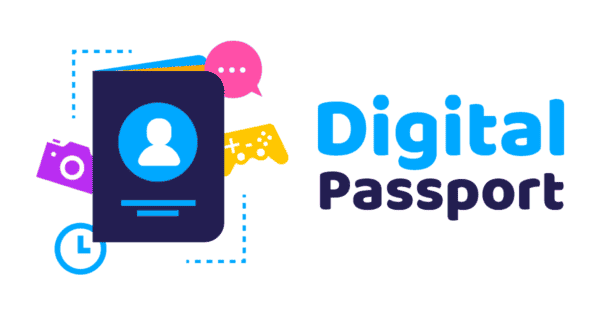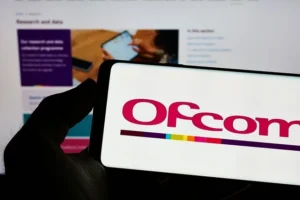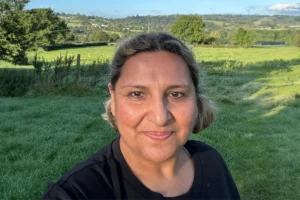- The initiative – launched today by Children’s Minister Vicky Ford – is designed to help communication between foster carers and the children in their care, who are statistically at greater risk of online harm
- It is the first initiative launched by the UK Council for Internet Safety‘s (UKCIS) Vulnerable Users Working Group – chaired by Internet Matters, which is campaigning for care experienced children to be better supported in their online lives
- The Digital Passport will be a living document enabling foster carers and social workers to support children in their daily digital routine, from connecting with friends on social media through to video games they love to play
From today, children and young people living with foster carers will be able to take advantage of a new ‘Digital Passport’ – a living document designed to help keep them safe and happy in their online world.
Research shows that the world of video games, social media, and being online has become a vital refuge for young people in care – yet they are at a greater risk of encountering online harm than other children.
As many children move to new foster parents several times a year, the new passport will ensure that while their home may change, the importance of their online life is communicated to new adults in their life.
The Digital Passport is being launched today by the UKCIS Vulnerable Users Working Group, which says it will act as a communication tool between social workers, foster parents, and their children. It has been created to facilitate frequent and supportive conversations and agree on proactive steps they can both take to keep children safer online, record any safeguarding or concerning incidents, as well as celebrate what they enjoy online.
The launch coincides with Foster Care Fortnight, the annual campaign to raise the profile of fostering and show how it transforms lives.
Claire Levens, chair of the UKCIS Vulnerable Users Working Group and Policy Director at Internet Matters, said: “Children and young people with care experience are one of the communities of children most likely to encounter online risk and least likely to be well supported, which is why Internet Matters is campaigning for more to be done to prevent the risks becoming harms.
“I’m delighted that the Working Group we created two years ago – a collaboration of talented experts – has created this resource to empower children in care to talk about what they do online and give foster carers more understanding of what children enjoy on screens while at the same time enabling them to get involved and keep them away from harm.”
Adrienne Katz, Director of Youthworks, who led the development of the Digital Passport, said: “Care experienced children say that being connected online is a lifeline, even a refuge from some of the issues they face. Foster parents in turn described the responsibilities they have and the difficulties they have dealing with digital life. The Digital passport is one step towards helping them support children in their care to safely access online opportunities.”
Vicky Ford MP, Children’s Minister said: “The Government is committed to making the UK the safest place in the world to go online and that has to include all children. I’m delighted the Vulnerable Users working group has created this Digital Passport – I’m sure foster carers and social workers will use it to help children have a safer online experience.”
The Digital Passport has been created by the UKCIS Vulnerable Users Working Group – a voluntary collaboration of 24 leading organisations and experts working to keep vulnerable users including children safe online. It will be launched today (4pm) in a webinar with Children’s Minister Vicky Ford giving an address to welcome the initiative.
Social workers and foster parents are able to download the Digital Passports from the Internet Matters website from today – https://www.internetmatters.org/ukcis-vulnerable-working-group/ukcis-digital-passport/
Q&A
What is the Digital Passport?
The Digital Passport is a communication tool created to support children and young people with care experience talk with their carers about their online lives.
It will:
- Help enable the child’s digital life in a positive and supportive way
- Provide carers with a tool to clarify and support a discussion and understanding about online life
- Help negotiate agreements about internet access and device use between carer and child
- Provide consistency if a child or young person has to move to another placement or home environment
- Create a record to improve safeguarding and make the most of what technology offers and open up opportunities for children and young people, especially those in or leaving care
How will it work?
The Passport can be used as a way of recording agreements made, as well as checking whether they are still working for the child. Talking about the Passport can also open the way to developing new agreements and to give children in care a way of opening up a conversation about how they can be best supported.
The Digital Passport has two main sections. One brings together information for the foster carer and other professionals about the digital life of the child. The other is for the child to express their wishes and feelings, hopes and interests.
Why do we need it?
We know that the most effective way of keeping children safe online is for their carers to be interested in and supportive of their online lives, and for conversations to be meaningful and regular.
We also know that many foster carers are tech-hesitant and may default to removing devices and restricting digital access, when for many young people in care it is the only way they have of connecting to friends and where appropriate, family. The Digital Passport serves as a resource to support foster carers in managing the crucial conversations that will help them understand, support, and safeguard their child’s online life.
Will it be mandatory for foster carers to use a Digital Passport?
The Passport is optional, to be used when and how the carer and child feel is best. It is not mandatory or intended to be a means of enforcing online rules.
The full potential of the Passport could be realised if the National Minimum Standards for foster carers (in England) required mandatory, meaningful training in online safety which could be complemented by tools such as Passport.
Who will use it?
While the Digital Passport has been designed for children in care and their foster carers, it can be used by any professional or person chosen by the child. Children should be able to have a say in who sees their section of the passport.
The team around the child is encouraged to see this as part of their record. Social workers have a role to play in providing the foster parent with initial information. It is a living document that will develop and change and should make an ongoing contribution to reviews and supervision for foster carers.
ABOUT UKCIS
The UK Council for Internet Safety (UKCIS) is a collaborative forum through which the government, the tech community, and the third sector work together to ensure the UK is the safest place in the world to be online.
UKCIS is supported by the Department for Digital, Culture, Media & Sport, the Department for Education, and the Home Office.
More can be found here.
UKCIS Vulnerable Users Working Group Membership
Anti Bullying Alliance
Assoc of Adult & Child Online Safety Specialists
Assoc. of School & College Leaders
Barnardo’s
British Assoc for Counselling and Psychotherapy
Centre for Safeguarding and Digital Practice and Research
Childnet International
DCMS
DfE
Disabled Children Child Protection Network [Scotland]
Internet Matters
London Grid for Learning
Mencap
NCA – CEOP
NSPCC
Ofcom
Office of the Children’s Commissioner
Parent Zone
Samaritans
South West Grid for Learning
Stonewall
University of East Anglia
Welsh Government
Youthworks





